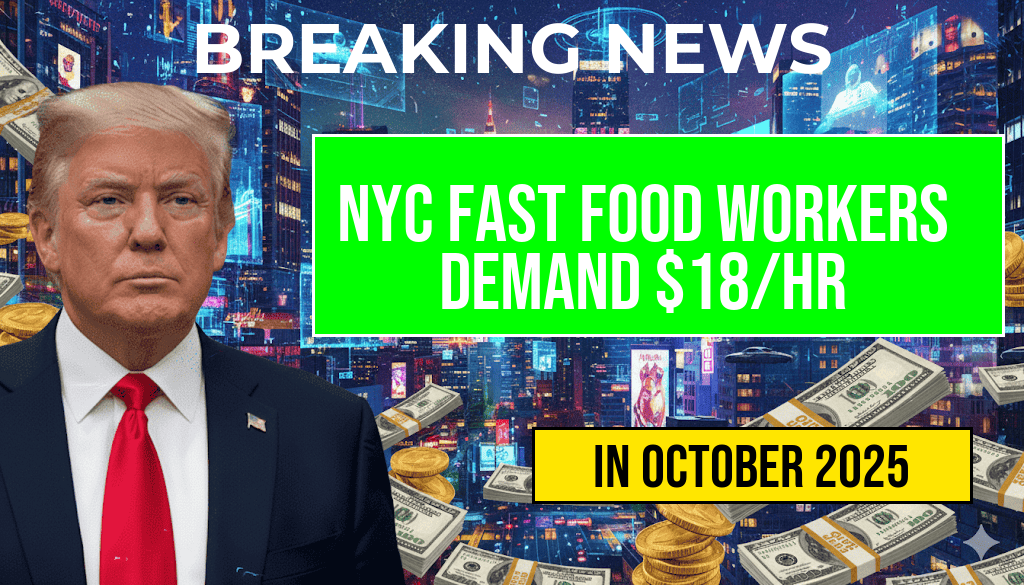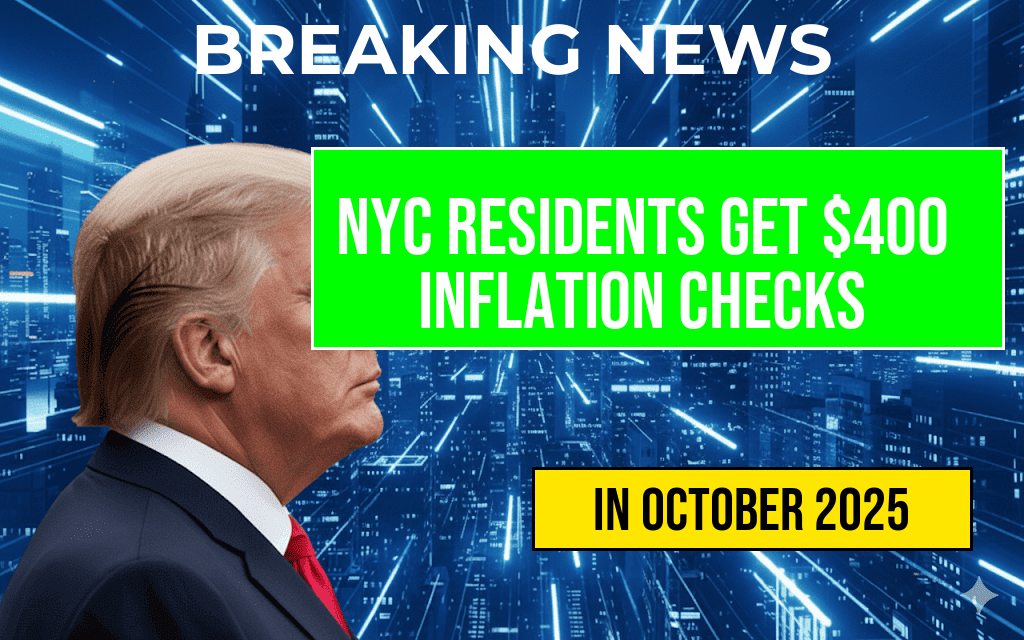Fast food workers across New York City are mobilizing for a significant wage increase, advocating for a minimum of $18 an hour. The ongoing campaign, led by local worker coalitions and labor unions, aims to address the rising cost of living and improve working conditions in a sector characterized by high turnover and low pay. As the debate over fair wages intensifies amid economic pressures and political negotiations, organizers argue that a higher minimum wage is essential to ensure economic stability for frontline workers who serve millions daily. This movement gains momentum just as city officials consider new policies to bolster workers’ rights, reflecting broader national conversations about income inequality and labor standards.
Background on NYC’s Fast Food Wage Debate
New York City has long grappled with the challenge of setting fair wages for its service industry workforce. While the city’s minimum wage has incrementally increased over recent years, many fast food employees still earn below a living wage, especially given the city’s high living costs. According to data from the Wikipedia page on minimum wages in the U.S., the federal minimum has remained at $7.25 since 2009, though states and cities like New York have enacted higher local minimums.
In 2019, New York raised its minimum wage for fast food workers to $15 an hour in New York City, with phased increases planned over subsequent years. However, workers and advocacy groups argue that this benchmark still falls short of the actual cost of living, especially as housing prices continue to surge. The campaign for $18 an hour reflects a broader push to align wages with inflation and economic realities faced by essential workers.
The Campaign’s Drivers and Goals
Organized by groups such as Fast Food Justice and New York Workers’ Alliance, the campaign emphasizes several core objectives:
- Achieving a minimum wage of $18 an hour for all fast food workers in NYC.
- Ensuring accessible paid sick leave and benefits.
- Reducing turnover by improving job stability and wages.
- Addressing racial and economic disparities within the industry.
Campaign organizers highlight the disproportionate impact of low wages on communities of color, many of whom work in fast food jobs as their primary source of income. They also point to the essential nature of these roles amid the ongoing COVID-19 pandemic, which underscored the importance of frontline workers.
Responses from Business Groups and Policymakers
Business associations representing fast food franchises and restaurant owners have expressed concerns about the feasibility of a $18 minimum wage. They argue that such increases could lead to higher prices for consumers, reduced employment opportunities, or increased automation to offset labor costs. In a statement, the National Restaurant Association noted that “significant wage hikes could threaten the viability of small and medium-sized businesses.”
Meanwhile, some city officials have shown openness to the proposal. New York City Council members have introduced legislation supporting a higher minimum wage, framing it as a step toward economic justice. Councilmember Sara Gonzalez stated, “Fast food workers are the backbone of our economy, and they deserve wages that reflect their contributions and the cost of living here.”
Economic Impact and Broader Context
Studies from organizations such as the Urban Institute suggest that moderate increases in minimum wages can boost worker earnings without significant employment losses. However, critics warn that sharp increases could strain small businesses, especially in competitive urban markets like NYC.
| Aspect | Potential Impact |
|---|---|
| Worker Earnings | Significant boost, lifting many above poverty line |
| Business Costs | Rise in operational expenses; potential shift to automation |
| Employment Levels | Possible stabilization, but with some risk of reduced hiring |
| Consumer Prices | Potential increase in menu prices to offset higher wages |
Community and Worker Perspectives
Fast food employees and community advocates largely support the $18 minimum wage, emphasizing the tangible benefits of increased income. Maria Lopez, a worker at a Manhattan burger chain, shared, “We’ve been asking for fair pay for years. It’s hard to make ends meet when wages stay so low, especially with rent and transportation costs rising.”
Labor unions and advocacy groups are organizing protests, petitions, and lobbying efforts to pressure city officials into adopting the wage increase. They argue that improving wages not only benefits workers but also stimulates local economies through increased spending power.
Looking Ahead
As city policymakers deliberate on the wage proposal, stakeholders are watching closely. The outcome could set a precedent for other urban centers grappling with similar issues. Given the political landscape and economic pressures, advocates remain optimistic that sustained pressure and public support will lead to tangible change.
For further context on wage policies and economic impacts, consult Forbes and the Wikipedia page on economics of minimum wages.
Frequently Asked Questions
What is the main goal of the New York fast food workers’ campaign?
The primary goal of the campaign is to advocate for a $18 an hour minimum wage for fast food workers in New York City, aiming to improve their wages and working conditions.
Why are fast food workers in NYC demanding a higher minimum wage?
Fast food workers are demanding a higher minimum wage to address low wages, financial instability, and economic inequality within the industry, seeking fair compensation for their labor.
How might this campaign impact fast food workers in NYC?
If successful, the campaign could lead to better wages, increased job security, and improved working conditions for fast food workers across New York City.
What challenges does the campaign face from industry or policymakers?
The campaign may encounter opposition from industry representatives and policymakers who argue that raising the minimum wage could impact business operations and job availability.
How can supporters help the fast food workers’ movement in NYC?
Supporters can help by signing petitions, participating in protests, spreading awareness, and advocating for policy changes to ensure a fair wage for all fast food workers.






